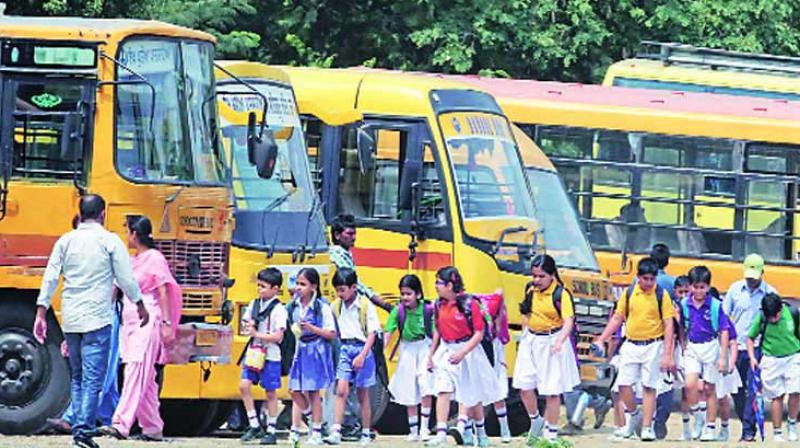By Invitation: Schools and malpractice - Absurd laws can't, honest governance will
School education is a concurrent subject under our Constitution.

School education in Karnataka makes more noise than all the professional education combined! School education is a concurrent subject under our Constitution. Therefore, both the Centre and the States have the authority to make laws concerning it; the Karnataka Legislature possesses the authority to make laws to regulate all schools in Karnataka. Period.
In 1983, the ‘Karnataka Education Bill’ was introduced but remained mired in controvery over how much Governmental regulation was appropriate or desirable over private schools. Finally, it was passed in the year 1995. Very soon, it became bloated after confusing regulations were added to it.
In 1998, this Karnataka Education Act was amended to exclude schools affiliated to the 1) Central Board of Secondary Education (CBSE) and 2) Council of Indian School Certificate Examination (‘CISCE’ but popularly known as ‘ICSE’), a private Board. This exclusion did two things –it created massive resentment among schools governed by the State Board and freed CBSE and ICSE schools from the confusing and bewildering State regulations while allowing them to regulate themselves.
Fees are rigidly regulated for schools governed by State Board. In fact, the levels are rigid to the point of being frivolous and ridiculous. For instance, do you know that State Board schools are told to not collect more than '600 per year per student towards ‘Development Fees’? You may not, simply because nobody adheres to these ridiculous rules. And, as the legal counsel representing the largest number of private unaided schools in Karnataka, I can tell you that most of these rules play little part in the provision of quality education but instead, force parents to shell out bribes. Therefore, the CBSE and ICSE schools have been fortunate in that they have remained outside the purview of these bizarre rules - until now. A recent amendment to the Karnataka Education Act brings both the CBSE and ICSE schools under its umbrella. However, the only practical impact of it will be that they will also be harassed by the terribly corrupt State Education Officers and just to be free of this, they will have to bribe
them regularly. Coming to the law, an eleven-judge Bench of the Supreme Court held in 2002 that the Government should not fix a rigid fee structure in private unaided schools – schools that should only survive on the fees they charge. This is the law in this country. Therefore, the effort of the Karnataka Government to set a rigid fee structure upon CBSE and ICSE schools will simply be ignored, again.
More than 75% of all schools in Karnataka are government schools where education is altogether free. Another 3% are private aided schools where the Government puts firm controls. Private unaided schools are the balance 17%. The majority of these 17% are schools governed by the State Board; schools affiliated to the CBSE and ICSE are a small number in the State.
The parents who choose private unaided schools are those who do not prefer to avail of free education in government schools. The thing that makes a fee-charging private unaided school attractive to a parent that already has the option of free education in government schools is the autonomy that a private unaided school has over a government school. The ability to fix one’s own fee structure is a major part of this autonomy.
As a matter of law, all private schools have an obligation to be run as charitable organisations. Thereby, all monies that are received in fees should only be spent towards the school and nobody is allowed pocket it privately. In other words, every rupee collected by a school should be compulsorily receipted and all of such money should only be spent towards the school. Therefore, a rigid fee structure in private unaided schools neither makes sense nor is it lawful. Unlike professional education where seats are very limited such as in Engineering or Medicine, seats for school education is plentiful; most government schools are running dry.
I am surprised that the government does not wish to take more meaningful steps such as to find out if a school that attracts many complaints is spending all of its fees only towards the school. Those establishments set up merely to make fill the management’s pockets have no place in our society and we will benefit collectively when they are identified and shut down. Adding mindlessly to education laws does nothing to check errant schools. Honesty in government is what it takes to stop such schools and we rarely find enough of this in our Education Department.

